

In the field of psychiatry, R.D. Laing is considered something of a big deal. Starting work in 1953 at the Gartnavel Royal Mental Hospital in his native Glasgow, he immediately acquired the title ‘youngest consultant in the country’, and a reputation for his unorthodox psychological beliefs. This was a time when electroconvulsive and insulin coma therapies were still considered cutting edge treatments for mental trauma. Yes, they really are as bad as they sound.
His ‘unorthodoxy’ was that talking therapies, and empathetic, one-to-one doctor/patient relationships were far more effective. Taking patients’ descriptions of their own mental state at face value, rather than treating them as symptoms of some other, underlying illness, which only trained doctors could recognise. Now, of course, these ideas are considered mainstream and practiced in mental institutions the world over. The same cannot be said of all his beliefs, however.
Held up as a figurehead of Western counterculture during the 1960s/70s, he proposed and vigorously defended the idea that ailments such as schizophrenia were not disorders at all. Rather, they were rational reactions to the insane games played by such authoritarian institutions as family, government, and the church.
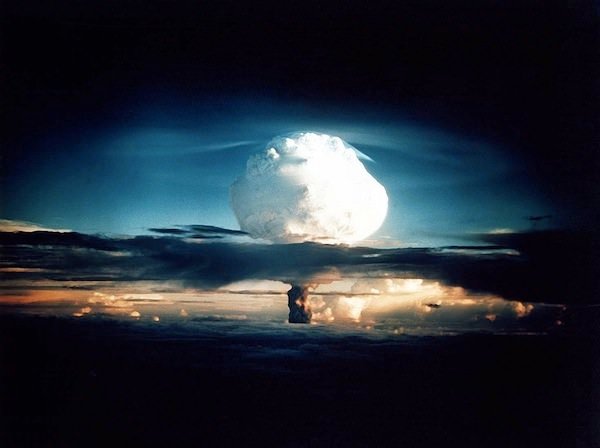
These games were not of the fun variety. They were a way of explaining how, when presented with various social and political rules (e.g. law, polite conduct, traditional roles, moral and religious codes), human beings competed with one another to turn these rules to their own personal advantage. According to Game Theory, if these rules could be understood, then it was possible to model and predict, mathematically, what happens when two such ‘rational actors’ compete.
By the 1960s, this idea had already gained significant popularity in academic and political circles. Well known experiments such as The Prisoner’s Dilemma made a profound impact on fields as diverse as Economics and Cold War Strategy, and would shape government policy in both for decades to come. Laing’s interest, however, was not so grand. Nor did he buy into the idea that such game playing was in any way rational, or optimal.
He wanted to model games which, he believed, he saw taking place everyday between actual people. Dysfunctional, psychologically unstable people. Whether they be family members, lovers, or even different versions and conceptions of individual selves.
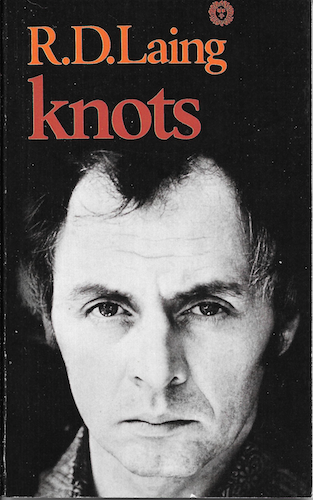
playing a game. If I show them I see they are, I
shall break the rules and they will punish me.
I must play their game, of not seeing I see the game.
One of the results of this period of his thinking was a book of poetry, Knots, the introductory passage of which is quoted above. Laing published a fairly substantial quantity of poetry during his career, however it is perhaps this book alone which crowns his dual contributions to both psychiatry and literature. With that in mind, I don’t think it’s unfair to say that it makes for some pretty strange reading.
At the time of publication and in the years since, there has been some debate as to whether it is even poetry at all. In fact, the edition I have sitting on my desk makes no mention to poetry whatsoever, labelling it ‘psychology’ instead. As I’m sure Laing would agree, these labels ultimately account for very little. Behind the often clinical and logically driven language, there are hints of real people, and real emotional concerns which form the backbone of poetic insight.
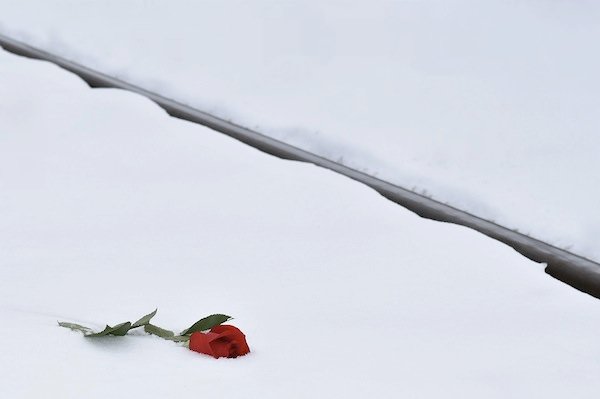
Jill and Jack both want to be wanted.
Jill wants Jack because he wants to be wanted
Jack wants Jill because she wants to be wanted.Jill wants Jack to want
Jill to want
Jack's want of her want
for his want of her want ofJack's want that Jill wants
Jack to want
Jill to want
Jack's want of her want
for his want of
her to want Jack to want
Erm, what?
I hear you. Let’s try and break it down.
Jack and Jill are essentially caught in identical loops of needing to be desired, a need which prevents that desire from ever being fulfilled. The first line lays this out clearly enough; they both “want to be wanted”. The second and third lines show that they also both want each other, for the reason that the other also wants to be wanted.
So what’s the problem? Neither of them knows that the other wants them.
So fearful are both of them that their desire will not be matched by the other, they never make the leap of faith that would resolve this fear. Their need to be desired is greater than their need to desire the other person, and so the safest option is to simply want each other’s want in silence. Rather than speak out loud and risk discovering they themselves are not wanted.
A defensive game in which self-interest scuppers the ideal result. The tragedy of romantic desire laid, quite literally, bare.
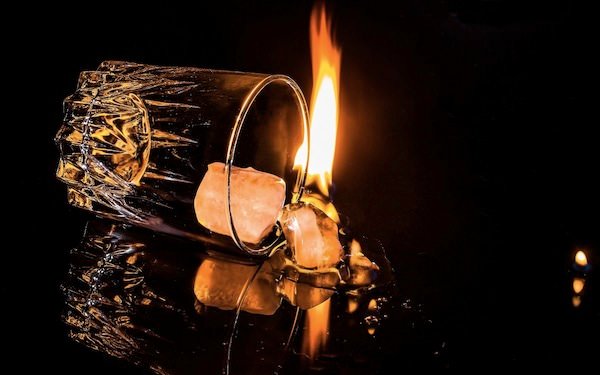
She has started to drink
as a way to cope
that makes her less able to copethe more she drinks
the more frightened she is of becoming a drunkardthe more drunk
the less frightened of being drunkthe more frightened of being drunk when not drunk
the more not frightened drunk
the more frightened not drunkthe more she destroys herself
the more frightened of being destroyed by himthe more frightened of destroying him
the more she destroys herself
This poem is perhaps a little easier to intuit. Laing presents us with a clear cut depiction of the pathology of addiction, what in everyday language we would call its ‘cycles’. What this poem contributes to its understanding, however - what Laing tries to suggest in almost all these pieces - is that addiction takes place in response to the rules about addiction which society and family impose.
The rules are that being a drunkard is both, A) shameful, and B) destructive. It is precisely because the anonymous ‘She’ is fearful of both outcomes that she drinks in the first place, in order to alleviate that fear. Rather than deter addiction, these rules create the conditions in which drinking becomes a rational response. The action that follows logically and on the surface appears to be in her self-interest.
Hopefully, it should be clear now how these ideas link back to the overarching ones of Game Theory. What the theory presupposed was that rational actors adapted social rules at a comfortable distance, but for Laing, the rules themselves create the actors. By accepting them, and playing along, we accept also the inevitability of certain outcomes. The idea that anyone could remain rational and act in their own interests after prolonged exposure was laughable.
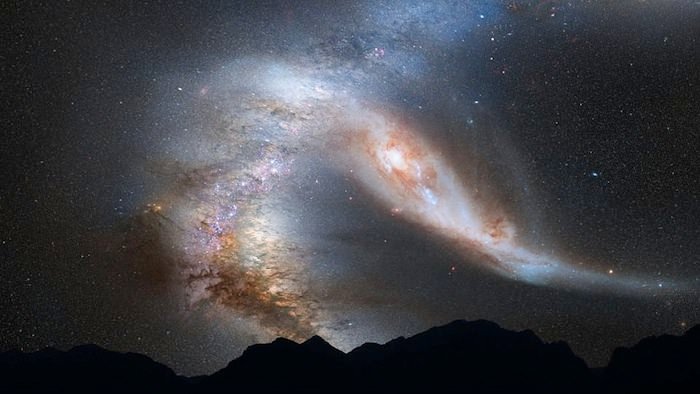
Still, not all of these games have such tragic consequences. This final example from the last section of the book turns to the question of being itself, how linguistic and physical rules determine the way we conceive of ourselves in relation to the universe. The result is profoundly spiritual. Here, irrationality is not something to be feared, but rather embraced.
I am doing it
the it I am doing is
the I that is doing it
the I that is doing it is
the it I am doing
it is doing the I that am doing it
I am being done by the it I am doing
it is doing itOne is afraid of
the self that is afraid of
the self that is afraid of
the self that is afraid
One may perhaps speak of reflections
If the rules themselves defy logic, then what hope do we have of ever coming to a logical conclusion? We are, ultimately, illogical creatures, and if we play at trying to rationalise the universe, it is only because we feel emotionally that there is still some game to be won. A new field of knowledge to dominate. Yet it is clear; self-interest has no context in these grander, transcendent rules. Even the simple attempt to locate ourselves as individuals is shown up as ridiculous. For Laing, the game of reality has no real players, no ‘rational actors’ to speak of.


Fascinating figure, and neat intro (I was not aware of his ‘poetry’).
Love this: self-interest has no context in these grander, transcendent rules. Echoes, of course, of mystical truths 🙏🏼
Thanks Yahia - I felt I was losing my way a bit toward the end but am glad you enjoyed that attempt at a summation :) The whole book is a profoundly mystical experience for me, although it is so rooted in his psychological, scientific understanding. It's perhaps the best explanation, in my mind, of why we have this tendency towards such questions and searches in the first place.
We are meaning-seeking creatures, and the seeming paradox of it, is that sometimes this means looking past the rational to something that defies naming (though it might go by many names: science, psychology, intuition, mysticism).
This is a compelling thought—I've tumbled the idea of rationality and insanity around quite a lot. Namely the problem of "rational and/or insane from whose perspective?—what's the 'measure' that identifies one from the other?"
My mind has naturally wanted to bring the idea of health into the arguement to say something like: If the mind state of the subject has led them to become unhealthy and/or otherwise caused them to lose certain controls over themselves, then that must imply that they are insane or are divorcing themselves from rationality.
However, the good point that you brought up would effectively challenge that claim and say they've been made unhealthy by their 'insane' surroundings and their contrastingly healthy minds lack the ability to cope with or exist in tandem with their environment.
Thanks for such an interesting response!
Even Laing would admit, at the end of the day, that people suffering with schizophrenia need help. The question is what are we helping them to do; reacquire an absolute, idealistic notion of 'rationality' which exists above and beyond human experience, or adjust to a version of rationality which in itself is a product of human experience and society?
I suppose it falls back into that age old debate of nature vs. nurture. Whether we have innate natures in whose image the outside environment is shaped, or the outside environment ultimately shapes us and creates who we are. I tend to fall into the nurture category, hence my attraction to practitioners like Laing. Can we really 'lose control', as you say, when so much of our experience of reality is firmly out of our control to begin with?
Appreciate you taking the time to share your thoughts :)
R.D. Laing was one of the authors, I read when studying social work at Ryerson Universit many years ago. Until now I was unaware of his use of poetry and his poetic work. Thank you for introducing me to them.
No problem! Glad to hear you've already had some exposure to his work - it's pretty illuminating stuff, although doesn't always sit well with everyone.
saludos soy nuevo en steemit
Hi there, thanks for stopping by, and welcome to Steemit!
This post has been selected for curation by @msp-curation by @clayboyn and has been upvoted and will be featured in the weekly philosophy curation post. It will also be considered for the official @minnowsupport curation post and if selected will be resteemed from the main account. Feel free to join us on Discord!
This post has been resteemed from MSP3K courtesy of @clayboyn from the Minnow Support Project ( @minnowsupport ).
Bots Information:
Join the P.A.L. Discord | Check out MSPSteem | Listen to MSP-Waves
I threw on a random track through Youtube after reading and responding to this post—I shit you not, this is the track that played:
See, even youtube algorithm agrees, haha. Classic tune too!